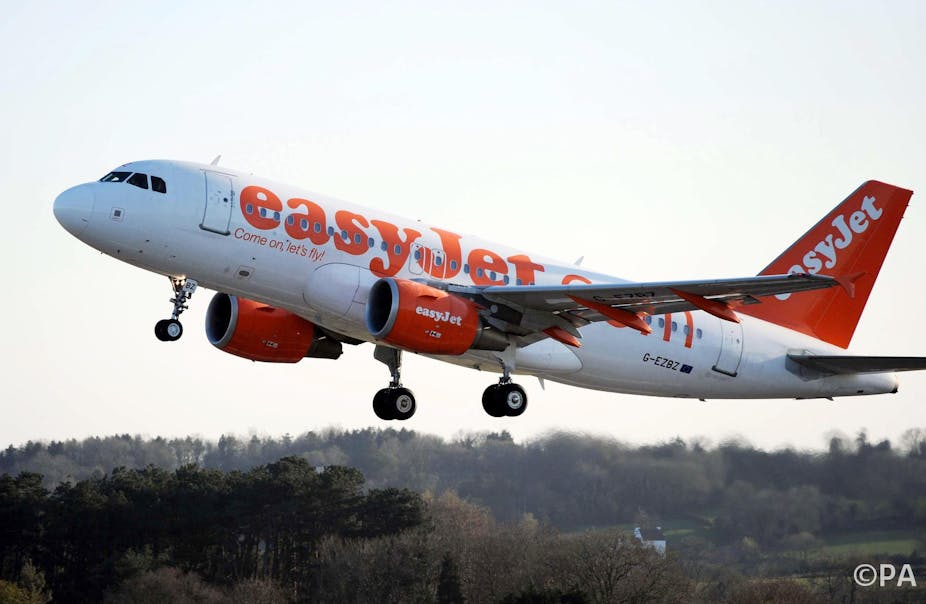How low can you go? That is the question that easyJet founder Stelios Haji-Ioannou has posed to grocery shoppers with the announcement of plans for “easyFoodstore”, a budget grocery shop in Croydon, south London. The entrepreneur aims to challenge, even undercut, current budget operators such as Aldi and Lidl with a venture that could, if successful, be rolled out on a wider scale next year.
Stelios has said he became aware of an opportunity after seeing publicity about the widespread use of food banks.
Concentrating on affordable, basic “no-brand-name” packet and tinned foods at bargain prices, easyFoodstore underlines the need for additional reliable day-to-day provision of basic foodstuffs.
It’s not hard to see why he sees this move as a potential moneymaker. After all, the UK grocery market was worth £163.2 billion in 2012, an increase of 3.8% on the previous year. Accounting for more than half of all retail spending, it is among the most critical sectors of the UK economy.
A polarised sector
But this growth has not been shared evenly throughout the industry, with the strongest performance coming at the top and bottom end of the market. High-end grocer Waitrose increased its market share and reported strong sales figures, as did the budget retailers Aldi, Lidl and Scottish frozen foods discounter Farm Foods. Sales growth among the main supermarket brands was considerably lower.
Discount retailers make up £7.5 billion of the grocery sector, and the strong performance during the recession years has encouraged new rivals. However, the question remains: is there any room left at the bottom end of the British grocery market?
Budget supermarkets arrived in the UK in the late nineties, prompting a counterattack by bigger supermarkets through their budget ranges. Over the years discounters have seen flat growth with limited product lines, and have realised that to grow in the UK they need to alter their winning formula in other European countries.
Aldi, for example, typically stocks fewer than 700-800 product lines overseas. In the UK however, it hugely increased that number; one new site in Romford, east London stores nearly 1400 different products. On the other hand, Lidl has started to introduce more branded product lines to attract a wider range of shoppers.
Flying to success
Stelios’ recipe for success in the airline business worked well because none of the big airliners had anything to compare it with, or the competency to do it. But that competency exists at Aldi, Lidl and in a specialised form at Iceland.
The grocery market is notoriously tough to break into, and the big players often flex their buying power over suppliers. If the idea behind easyFoodstore is to undercut the rest of the market, it is difficult to see where it would get the buying strength to bring prices down.
The no-frills, pile-it-high and sell-it-cheap strategy has a good record in the UK, as shown by the recent success of discounters or Tesco’s early days in the UK grocery market. But a 50-100 product offer is not enough to switch shoppers from the likes of Aldi and Lidl; they will simply demand more.
Cheap rents
Stelios also believes his ability to buy property gives his new venture a key advantage. He mentioned he already holds the cheaply bought freehold of the Croydon building so the shop does not need to be that profitable to give him a healthy return.
Currently the retail property market could offer him cheap bargain prices but that does not guarantee success. The only way to expand in a mature grocery market is to buy one of the existing chains as Walmart did when entering the UK through its purchase of Asda. But we know this is not a straightforward transformation - Morrisons took years to recover from buying out Safeway, for instance.
The idea that we are reaching the end of the cheap food era has been doing the rounds for some time. Demands to source groceries locally have pushed up prices, as has increased domestic demand in exporter countries. Proposed changes in food labelling to bring in universal standards have made it difficult for big retailers to compete on low cost.
Perhaps Stelios’ idea is that this new venture could further extend economies of scale to reach new lows, as we have seen with Poundland and 99p Stores in the general retail sector. easyFoodstores could indeed compete with the fixed price and variety discounters. However, this not the gap which Stelios has claimed to see in the UK grocery market.
With an already crowded marketplace and no major infrastructure or economies of scale to call on, it is difficult to see easyFoodstores making any notable impression anytime soon. Don’t throw out that Aldi card just yet.

